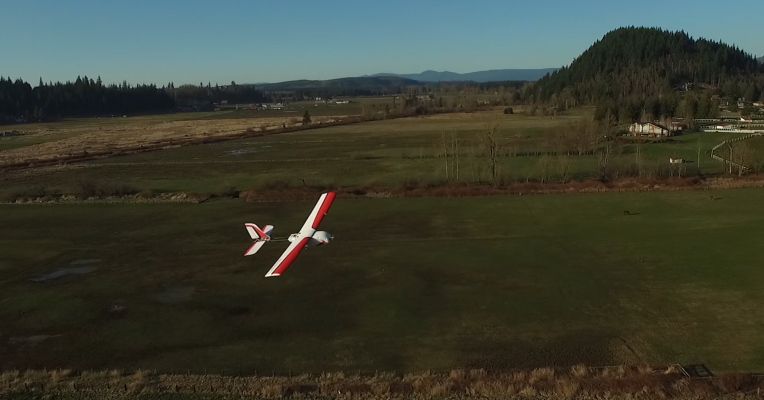“This month, urban thinkers from the United Nations, the European Commission and other organizations are meeting in Brussels to continue a curiously complex attempt: developing a universal definition of the “city.””


“This month, urban thinkers from the United Nations, the European Commission and other organizations are meeting in Brussels to continue a curiously complex attempt: developing a universal definition of the “city.””

Here’s a very important article to me—and a part of my platform moving forward. Automation is coming, but we don’t need to raise taxes to pay for a Basic Income. There are other ways to deal with our jobless future and poverty in America.
Like the Titanic, capitalism is sinking, but few passengers are wondering yet if there are enough lifeboats.
I recently declared my run as a Libertarian for California governor in 2018, and I gently support the idea of a state-funded basic income to offset the effects of ubiquitous automation. A basic income would give every Californian some money — and it makes sense to start such a dramatic program here in the Golden State, since this is where much of the human-job-replacing-tech is created.
My Libertarian friends are skeptical of my support for a basic income. They insist the only way to pay for such a program is via higher taxes. This is not true; other ways exist. California could potentially cut deals with the federal government to lease its empty land and natural resources to help pay for a basic income.
After all, state and federal resources belong to the people, and 45 percent of California (more than 45 million acres) is government-controlled land, leaving vast areas idle and mostly undeveloped.
The United States Air Force may become a sort of space cop in the not-too-distant future.
An off-Earth economy cannot truly take off unless moon miners and other pioneering entrepreneurs are able to operate in a safe and stable environment, said Air Force Lt. Col. Thomas Schilling, of Air University.
“The [U.S.] Navy secures the freedom of action for commerce globally for the good of all humankind, and I think it’s going to take a force very similar to that to provide the predictability and security that the marketplace of space will need,” Schilling said Tuesday (April 4) during a panel discussion at the 33rd National Space Symposium in Colorado Springs, Colorado. “I think that would be the role of the United States Air Force moving into the future.” [Home on the Moon: How to Build a Lunar Colony (Infographic)].

A tsunami of change is already arriving. Artificial intelligence is now capable of doing desk jobs that were previously safe from automation. The social and economic effects remain to be seen, but is AI what we think it is?
Workplaces that include artificial intelligence (AI) will soon be reality, say researchers who believe the rise of AI in all areas of life is not only inevitable, it’s set to reshape the way we think about consciousness and human identity.
From Metropolis to 2001: A Space Odyssey and The Terminator, robots and super-intelligent AIs in film have seduced and terrified our collective consciousness, having an impact on how we view artificial intelligence. But will they really crush the puny humans and take over the world?

The year is 2030. Former president Donald Trump’s border wall, once considered a political inevitability, was never built. Instead, its billions of dollars of funding were poured into something the world had never seen: a strip of shared territory spanning the border between the United States and Mexico. Otra Nation, as the state is called, is a high-tech ecotopia, powered by vast solar farms and connected with a hyperloop transportation system. Biometric checks identify citizens and visitors, and relaxed trade rules have turned Otra Nation into a booming economic hub. Environmental conservation policies have maximized potable water and ameliorated a new Dust Bowl to the north. This is the future envisioned by the Made Collective, a group of architects, urban planners, and others who are proposing what they call a “shared co-nation” as a new kind of state.
Many people have imagined their own alternatives to Trump’s planned border wall, from the plausible — like a bi-national irrigation initiative — to the absurd — like an “inflatoborder” made of plastic bubbles. Made’s members insist that they’re serious about Otra Nation, though, and that they’ve got the skills to make it work. That’s almost certainly not true — but it’s also beside the point. At a time when policy proposals should be taken “seriously but not literally,” and facts are up for grabs, Otra Nation turns the slippery Trump playbook around to offer a counter-fantasy. In the words of collective member Marina Muñoz, “We can really make the complete American continent great again.”

RAND has opened an office in the San Francisco Bay Area to foster collaboration with the region’s leaders and researchers working to solve today’s complex problems—issues including technological change and innovation, social inequality, water resource management, and transportation.
“RAND’s research and analysis in technology, science, and economic policy intersect directly with the innovation emerging from the San Francisco Bay Area,” said Michael D. Rich, president and CEO of RAND. “RAND’s new office should help strengthen awareness within the Bay Area community of our long-standing commitment to using evidence and data to help policy and decisionmakers enhance well-being in the region and beyond.”
RAND brings a unique set of tools to address these policy concerns: big-data analytics, gaming, and methods to help people make difficult decisions in the face of uncertainty. Nidhi Kalra, a senior information scientist, is leading the new office and will be convening public- and private-sector stakeholders to discuss important issues. “We want to partner with the region’s technology and innovation communities, to link our research and their expertise to make better policies and improve people’s lives,” she said.
United Launch Alliance (ULA) CEO Tory Bruno and key space enterprise partners discuss the vision of a self-sustained space economy within the confines of CisLunar space.
Panel members will representatives from American Institute of Aeronautics and Astronautics, Boeing, Made in Space, Offworld, and the United States Air Force.
Thanks for your interest!
Thanks to SAP Italia for making this video available, the original video is at https://youtu.be/PLS5wGAM3R8 You can download all my slides at www.gerdcloud.net; direct link to the slides used here is gerd.fm/sapitaliagerd
In this talk, I address the opportunities and challenges of exponential transformation, the coming convergence of man and machine, the changes coming to society, work and jobs, the 10 megashifts, and what it takes to lead into this future responsible and openly.
If you enjoy my videos and talks, please take a look at my new book “Technology vs Humanity” http://www.techvshuman.com or buy it via Amazon http://gerd.fm/globalTVHamazon
Gerd Leonhard Futurist, Humanist, Author / Keynote Speaker.
CEO of The Futures Agency
Zürich / Switzerland
http://www.futuristgerd.com or www.gerdleonhard.de
Download all of my videos and PDFs at http://www.gerdcloud.net
About my new book: are you ready for the greatest changes in recent human history? Futurism meets humanism in Gerd Leonhard’s ground-breaking new work of critical observation, discussing the multiple Megashifts that will radically alter not just our society and economy but our values and our biology. Wherever you stand on the scale between technomania and nostalgia for a lost world, this is a book to challenge, provoke, warn and inspire.

By Paula Klein
Is work becoming obsolete? Will Americans learn to love their leisure time? As the spotlight focuses on AI and its various implementations, former Harvard Professor Jeffrey Sachs, now at Columbia University and a special adviser to the United Nations, has some strong and diverse opinions about the macroeconomic impact of robots on the role of work in the future.
At a Mar. 24 seminar hosted by MIT IDE — the same day Treasury Secretary Steven Mnuchin amazed the tech community by saying AI wasn’t even on his radar — Sachs described AI developments as a “huge” with implications as vast as any previous seismic technology wave. “We are in the midst of a major transformation” that will fundamentally change civilization from the past, he said.
I’m excited to share my interview and footage I took of Jacque Fresco and Roxanne Meadows at The Venus Project for Now This. This video is really doing well! https://www.facebook.com/NowThisFuture/videos/1500983249942850/ #transhumanism #future
This man is trying to create a world without money.